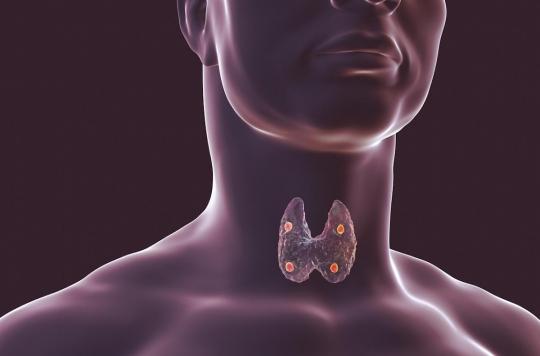A study carried out in the Netherlands reveals that 10% of patients treated normally with levothyroxine for hypothyroidism do not improve. In addition, they have more comorbidities and a poorer quality of life compared to those who do not take this thyroid hormone.

Levothyroxine is the hormone replacement that is standard treatment for hypothyroidism, regardless of the cause. A study in the Netherlands shows that, generally, 10% of people who take this treatment in replacement doses do not get better.
The results of this study were presented on March 20, 2018 during the 100th Endocrine Society annual meeting.
Feeling unwell despite a normal level of hormone in the blood
According to Hanneke Wouters, one of the authors of the study in hypothyroid patients, “about 10% of patients replaced by natural thyroid hormones continue to have unpleasant symptoms and to see their well-being disturbed, despite the fact that their blood levels are reduced. ‘thyroid hormones are within the normal range’.
Researchers analyzed the records of 34,440 participants in the Dutch Lifelines cohort study, including data regarding their medical history, thyroid hormone levels, prescription drug use, associated illnesses and quality of life. . They assessed the health-related quality of life using a questionnaire on physical, social, psychological and general health; as well as pain and vitality.
More associated diseases in patients under treatment
The authors understand by associated diseases (“co-morbidity”), the use of drugs other than levothyroxine (FT4) and oral contraceptives, or diseases such as migraine.
In practice, among the 955 people using levothyroxine, 80.6% have a comorbidity, against 66.0% among those who do not. Overall, only 60% of patients on levothyroxine have normal TSH levels, indicating effective feedback, while these levels are normal in 89% of those who do not. Levothyroxine users score lower on almost all health-related quality of life areas compared to those who do not.
The authors conclude that the presence of associated diseases probably has a greater impact on the quality of life in people using levothyroxine. The question arises of the relevance of the prescription of levothyroxine in 10% of patients in a country very close to France. A review of the diagnostics would be desirable.

.














